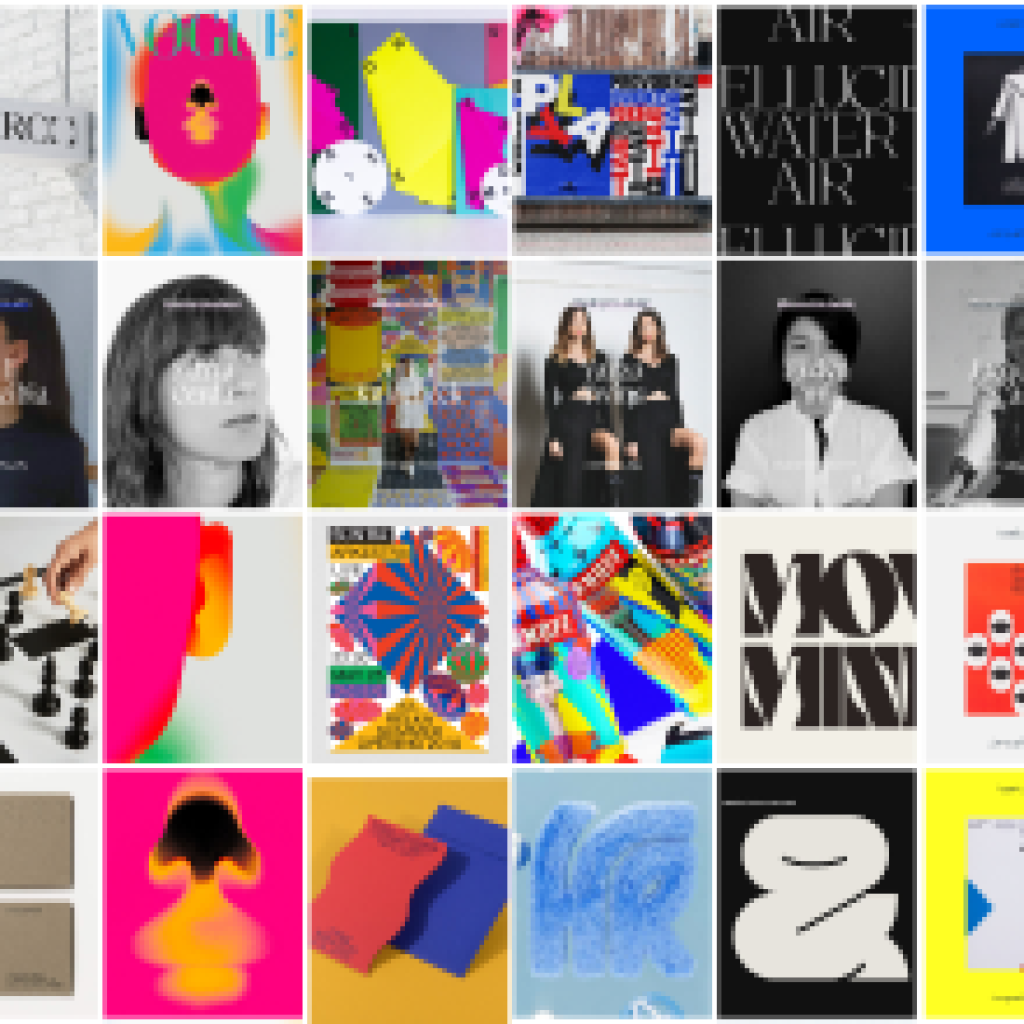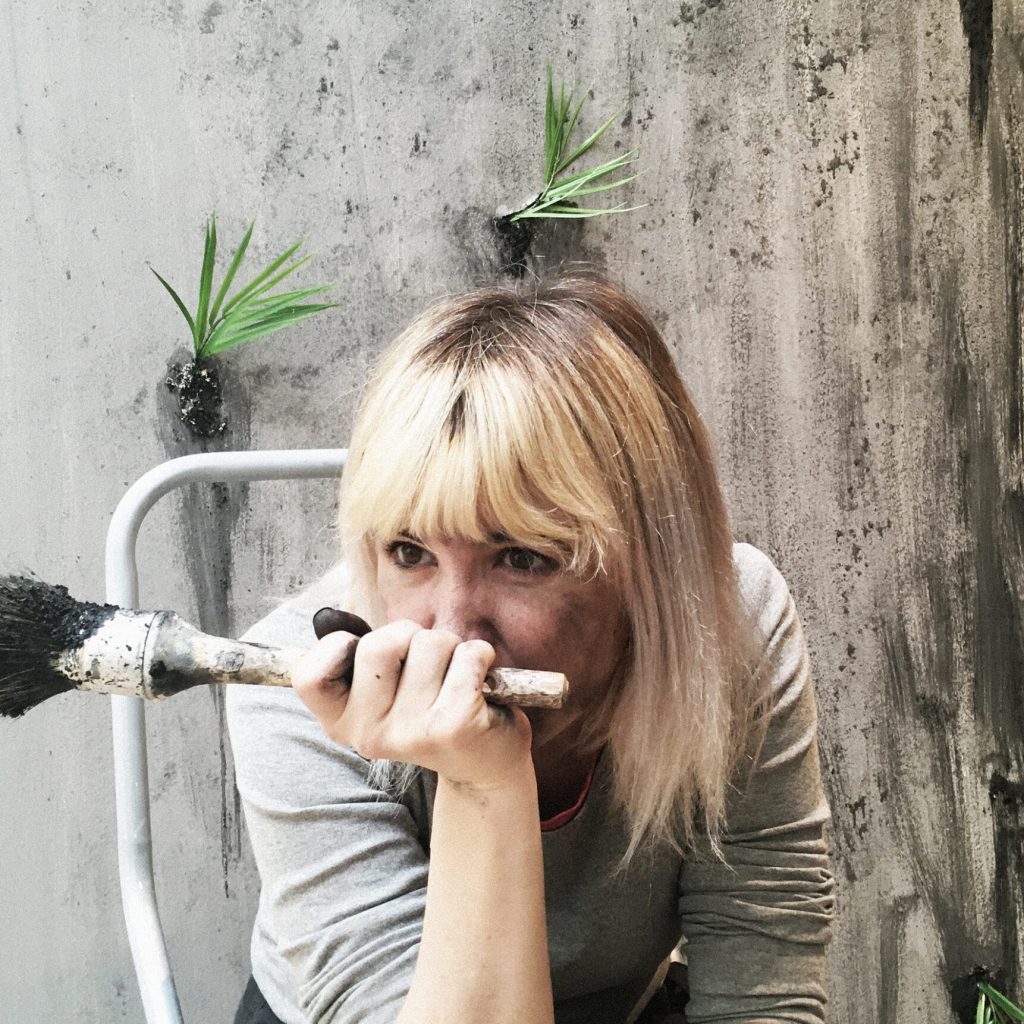The relevance that gender inequality has in the creative industries is huge: a lot of women professionals in design had felt insecure to speak in public about their work despite their work being really incredible; many others had felt uncomfortable or sexually harassed at some point in a working situation. Although the conversation on equity and empowerment was already initiated, nothing seemed sufficient because all of it kept going on. That is how FIDO started: to address the invisible side of gender inequality in the design sector

After two years creating content about powerful women designers and organizing events to gather and discuss about creativity and feminism, there was still something missing when trying to address gender equity and the situation of female designers in the creatives industries. Then, we realized it was about the most intimate dimension of it all: the way we look at ourselves in the mirror and the way we mirror others success into our own experiences. This fact is not casual as women have been historically led to insecurity, an intrinsic dynamic related to how we were socialized related to women’s self-perception. When that “mirror” came into the equation, all the elements that compose the balance for professionals in the design sector fell apart.
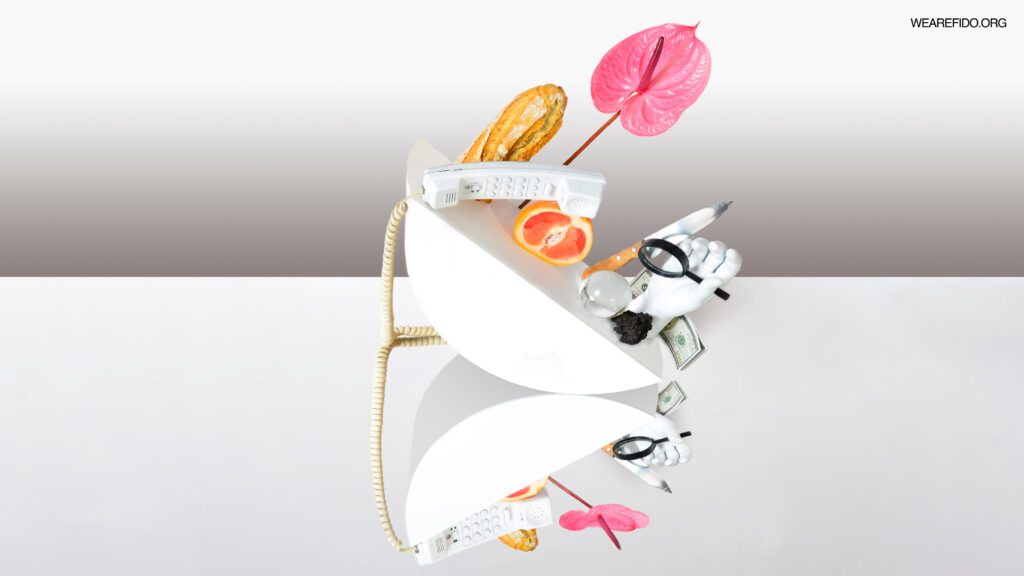
LET’S DO RESEARCH!
We conducted several interviews and confirmed that women’s self perception direct impacted their work situation. For that, we partnered with @elsindromedelaimpostora, a psychology and neuroscience project that helped us shaping the approach: we wanted to reach the deepest thoughts of women of our community in order to know what was really happening inside of them. For that, we conducted a survey and +150 women of our community answered in order to address chronic insecurity, sense of doubt, unease and other emotions of women creatives along work processes.
THE RESULTS
From this research we got some amazing -and frightening- results that definitely helped to better understand what happens to women creatives in the design sector. Apart from all the external conditions -in many times complicated for women-, there were also some powerful internal factors limiting our capacity to work and create. Here some powerful data:
94% of women creatives live with the permanent feeling that they still have “a lot to improve” and tend to compare their creative work to others’. With this, the evidence is clear: women creatives do not recognize their work enough.

Another huge matter: the money. 89% of women creative professionals confess that feel insecure to budget their work. Women are not used to talk about money in an utterly natural way and less when it comes to creative work. Work is work, and that’s worth money
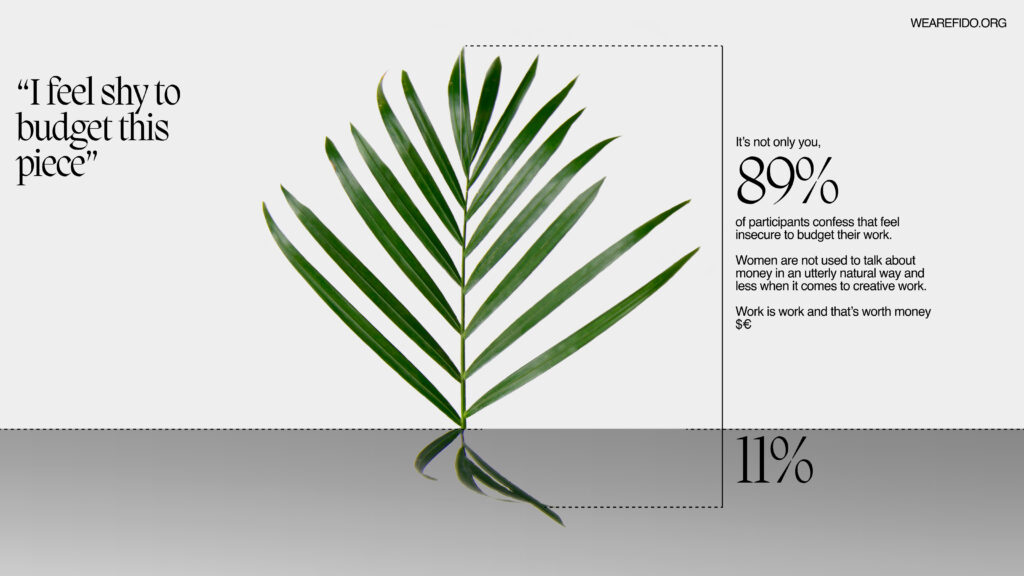
Also and maybe as a consequence, 75% of women designers end up feeling unsatisfied with their work which leads to take too much into account others’ opinions. The value that other’s voices have in our decisions and working procedures is a major consequence of the seek of external validation we have been educated under.
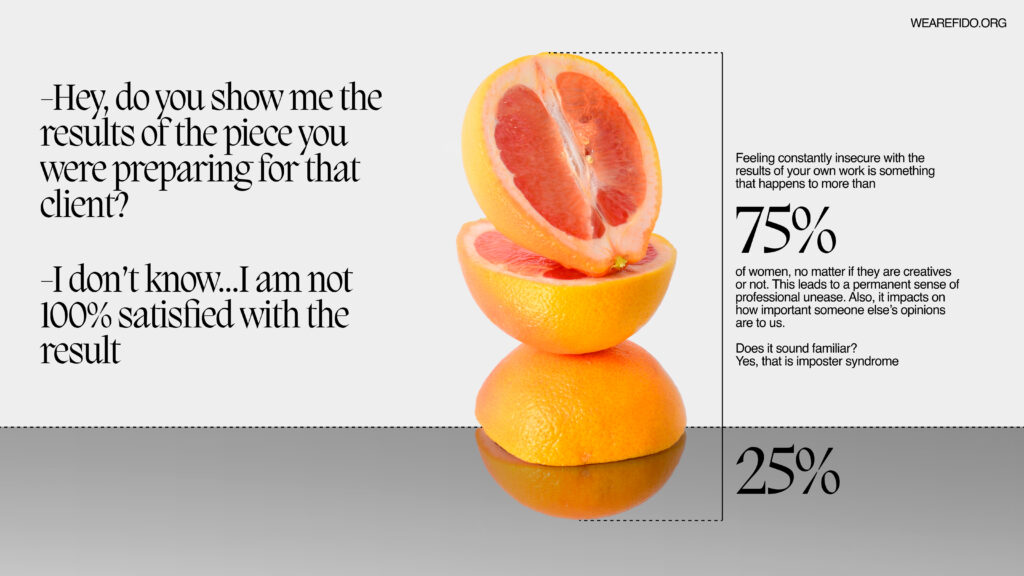
83% of women say that they have been “afraid” of the professional world because they felt insecure about themselves. This fact has a direct and significant impact also in salary wages and types of contracts. Women tend to spend way more years studying or under fragile economic conditions.
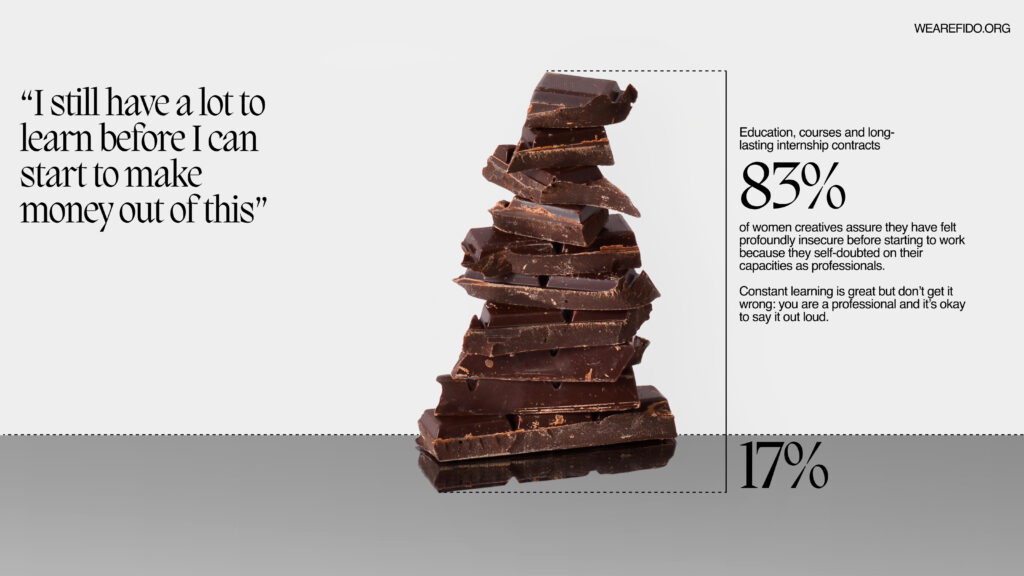
Last, but not least, 91% of women creatives believe that excessive sense of perfectionism impacts their mental health and the quality of their work. Here we always say: feedback yes, chronic self-doubt no, thanks.

Now we keep doing research on the matter and would genuinely love to hear your thoughts about it. If you feel like sharing anything on the topic, please contact us here!
*** All the images are property of ©FIDO, you’ll need their permission to reproduce them 🙂
